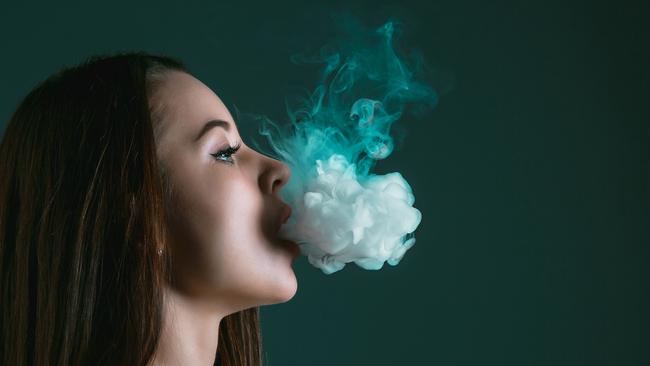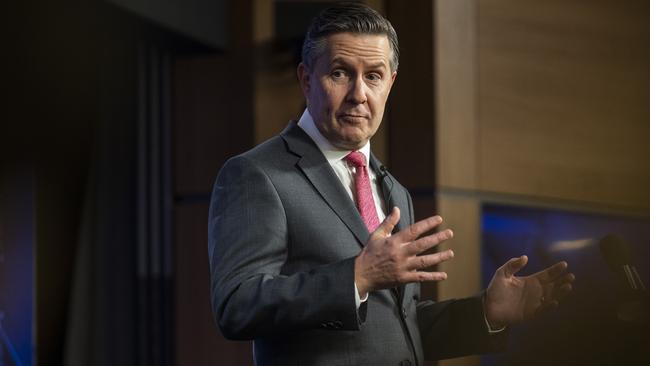Vaping lands patients in hospital, with more than 100 people including toddlers falling ill
Children as young as two are being hospitalised for vaping illnesses, shock new data shows, as the government vows to stop a new generation getting hooked on nicotine.

More than 100 people have been admitted to hospital with vaping-related illnesses in recent years, with the average length of stay more than six days.
Private health insurer data shows that vaping-related disorders were often closely tied with mental illnesses such as severe depression and anxiety.
The figures, which relate only to Australians with private health insurance, show 122 people were admitted to hospital for vaping illnesses since 2020, the youngest just two years old, and suffering from an accidental exposure to vaping.
The data, provided by Private Healthcare Australia, shows the average age of people hospitalised with vaping-related disorders was 55 years, and the average length of stay in hospital was 6.1 days.
Chest and lung disorders accounted for one in every five hospitalisations.
The data comes after the Albanese government vowed to ban recreational vaping in Australia, with Health Minister Mark Butler saying he would “not stand by and allow vaping to create another generation of nicotine addicts’.’

While vaping was originally pushed by big tobacco as a way of weaning nicotine addicts off cigarettes, it has instead become a gateway to smoking, with figures showing those who vaped were more likely to progress to smoking cigarettes.
Private Healthcare Australia chief Rachel David said the data indicated vaping could cause severe complications for people with comorbidities.
“The spread of this emerging public health issue has been terrifyingly fast and requires a firm and rapid response,” Dr David said. “Health funds are committed to supporting the government to help stamp out vaping and to highlight the dire consequences on peoples’ health.
“This is a serious health threat, and our data confirms it is impacting people of all ages including toddlers who are being accidentally poisoned by vapes.”
Health experts have also warned of the growing body of evidence that vapes are causing severe illnesses and even death among users.
Mark Brooke, chief executive of the Lung Foundation, said he was not surprised at the growing number of hospitalisations from vaping-related illness.
“What we see from vaping is a whole range of lung health, cardiovascular and neurological conditions related to the inhalation of aerosols, but also high dependency on nicotine,” Mr Brooke said. “We’ve also seen some physical injuries caused as a result of lithium batteries burning and exploding.”
He said the health effects from vaping came as a result of breathing heated aerosols into the lungs, which are designed to inhale only air. That causes cell changes and potentially permanent damage to the lungs Chemicals within the aerosols can also damage lungs.
“I think we only need to go back into history and understand that it took 40 years to recognise traditional tobacco products were linked with airways disease, cancer and cardiovascular disease.
“The massive upswing in recreational vaping will have untold consequences. We’re not able to say yet what the long-term health damage will be, but we know through initial evidence that we’re seeing changes to people’s airways, the cells in those airways, not the least of which is an ongoing add to nicotine. This data just confirms that this is the tip of the iceberg.”
Private Healthcare Australia data showed one in three of those detected with a vaping disorder had been admitted to hospital with adverse effects from vaccinations. One in 10 hospital stays involved people who were experiencing psychiatric, mental, addiction or behavioural disorders including severe depression.





To join the conversation, please log in. Don't have an account? Register
Join the conversation, you are commenting as Logout